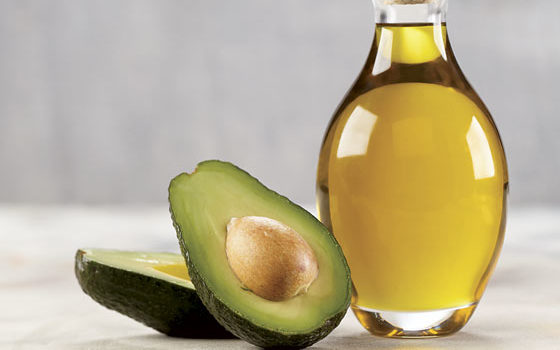For a long time, fats have had quite a bad reputation. Recently, however, adherents of the ketogenic, or “keto,” diet have been holding fats in high esteem. Whatever your stance, fats are essential to our health. They provide our body with energy, help with hormone production, and assist with proper cell function throughout our bodies. Without fats, we could not absorb vitamins A, E, or K. In short, they are essential to our survival!
With the rise of the ketogenic diet, many fatty foods have gained popularity in the past few years. We are all familiar with butter, olive oil, and canola oil when we cook. Yet, what about ghee, avocado oil, and coconut derivatives found in a variety of online recipes? Here is a brief product overview!
Ghee
Ghee is a clarified butter from India that is popular in Ayurvedic cuisine. To make ghee, the water, lactose, and proteins (mainly casein) are removed from butter. Ghee is made from 100% fat, in contrast to traditional butter, which is made up of 80% lipids and 20% water, sugar, and milk proteins. Why is it so popular?
- A key ingredient in “free-from” cooking: It’s a great choice for those with lactose intolerance or casein sensitivities.
- A higher smoke point: By clarifying the butter, anything likely to burn is removed. In contrast to traditional butter, which burns around 120 °C, ghee can be heated up to 250 °C before burning, which is useful for cooking and baking pastries.
- Increased shelf life: Sealed in an airtight container, it lasts much longer than traditional butter.
- Taste: Although you should compare them yourself, many prefer the subtle hazelnut hints in ghee to traditional butter.
However, note that ghee, like any butter, is mainly composed of saturated fatty acids from animals. Consume in moderation!
Coconut oil and coconut butter
Coconut in all its forms has been in high demand over the last few years. You have probably heard both “coconut oil” and “coconut butter” floating around. Are they the same product? Nope! Coconut oil is the oil that has been extracted from the flesh of a coconut, while coconut butter is made from flesh that has been ground into a paste. Coconut oil has a sweet taste and its consistency changes from liquid to solid depending on its temperature. The texture of coconut butter varies from creamy to extra solid (or almost waxy) when chilled.
Both products can be used in cooking, but for different purposes. Do not substitute one for the other in your recipes, as you risk spoiling the result. Use coconut oil for sautéing your food, or as a cooking oil to add a little exotic flavour to your sautés or baked goods. As for coconut butter, it’s better used as a spread than for cooking.
Remember that the coconut is made of up vegetable saturated fatty acids, the vast majority of which are lauric acids, a medium-chain fatty acid. This type of fat has a rather neutral effect on cholesterol. While its health properties cannot be compared to those of olive oil or canola oil, go ahead and make coconut oil a regular part of your diet.
Avocado oil
The newly popular avocado is particularly known for its high concentration of polyunsaturated fatty acids and its great omega-6/omega-3 ratio. It is important to note that its composition is highly influenced by its production conditions; the product quality on the market is therefore quite variable. Make sure to purchase cold-pressed extra-virgin olive oil to benefit from its health properties.
Like ghee, avocado oil’s smoke point is quite high. It can therefore be heated without burning quickly. We love the avocado taste it adds to our dishes. However, although its nutritional value is comparable to that of olive oil, its price is far from comparable. Avocado oil is generally a lot more expensive than olive oil, especially if it’s organic.
Virginie Lamontagne, Nutritionist at Rachelle Béry

